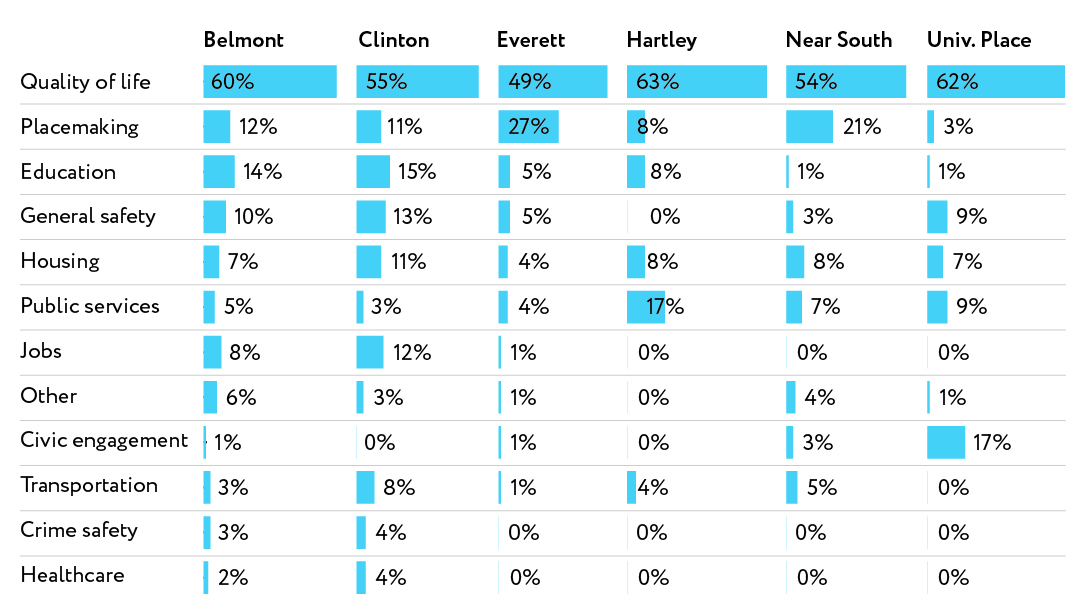Collective Impact Lincoln knocked on neighbors’ doors, held community events, and met with local organizations to understand what people liked or wanted to change in their neighborhoods.
What neighbors liked
Most often, neighbors said that they liked their neighborhood and the quality of life in Lincoln. “Quality of life” included location (close to work, school, parks), family connection, or other assets. For example:
- Good accessibility
- Good place for family
- Close to campus
- Bike paths are good
- Close to children’s school
Neighbors also said they liked their neighborhood, often saying that they like their neighbors and organizations in the community:
Like being near corner stores, access to downtown, bike lanes, likes diversity
I like how small it feels in terms of connections with people and the arts
Though all neighborhoods reported liking Quality of Life the best, some favorite qualities were different by neighborhood. For example, more University Place residents said they liked “Civic Engagement” compared with other neighborhoods, and more Hartley residents said they liked “Public Services” more than other neighborhoods. Everett residents more often mentioned “Placemaking” which referred to aspects of the neighborhood contributing to social connectedness and community, such as access to common gathering places like parks and local businesses.
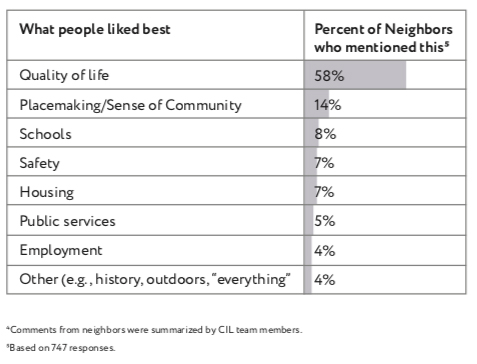
Our Neighbors' concerns
The most common concerns were safety and public services.
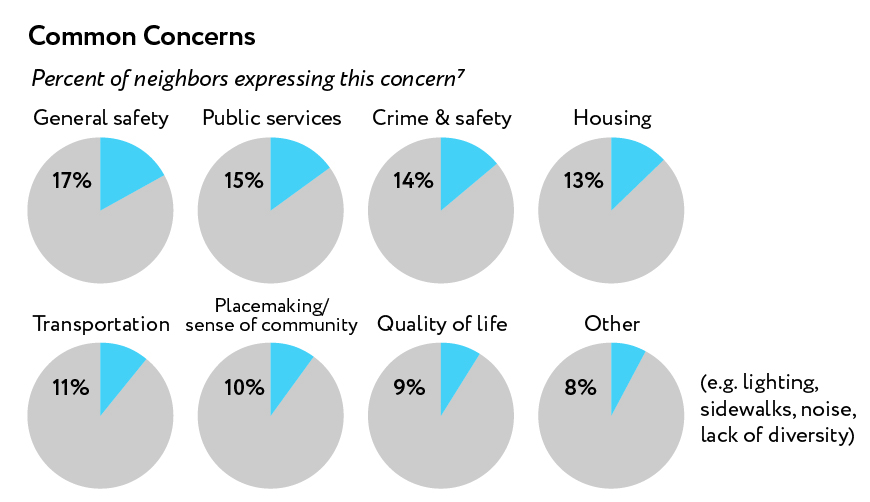
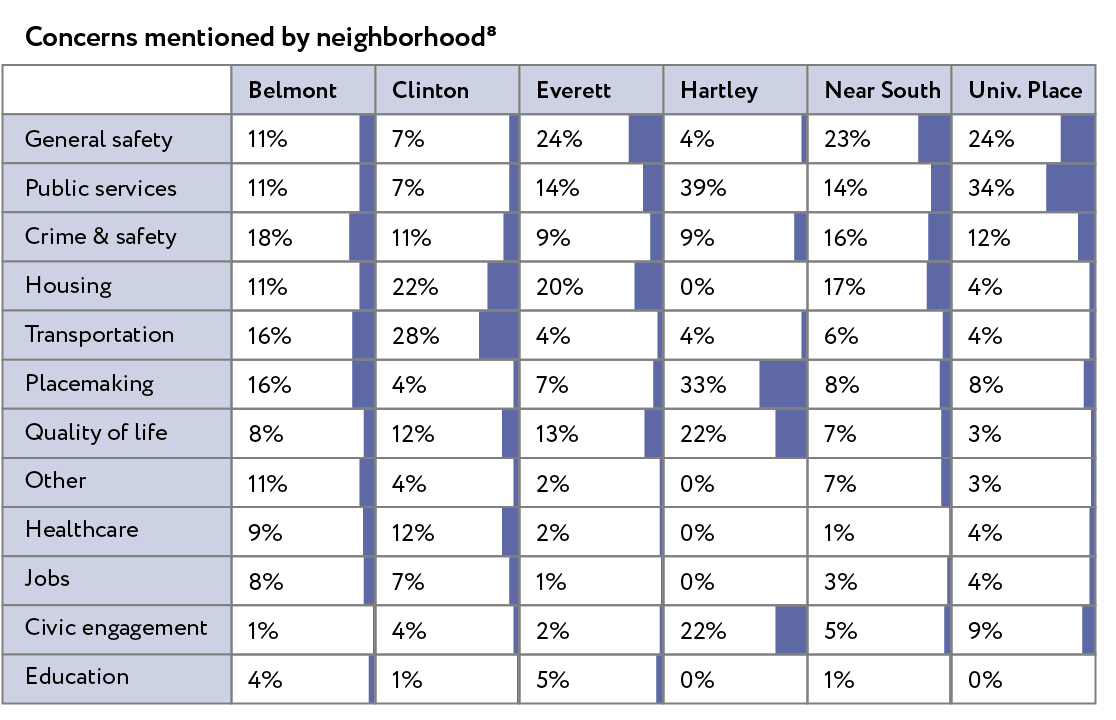
Concerns also varied by neighborhood. Clinton and Belmont neighbors were more likely to mention transportation as a concern. Public services were most likely to be mentioned as a concern by Hartley and University Place neighbors. Meanwhile, Everett, Near South, and University Place neighbors were most likely to mention general safety as a concern.
Neighbors were asked about specific common issues.
TRANSPORTATION
Of those who offered their impressions of their experience getting around in Lincoln, most people rated transportation “Excellent / Entirely Positive” or “Fairly Well / Mostly Positive.”
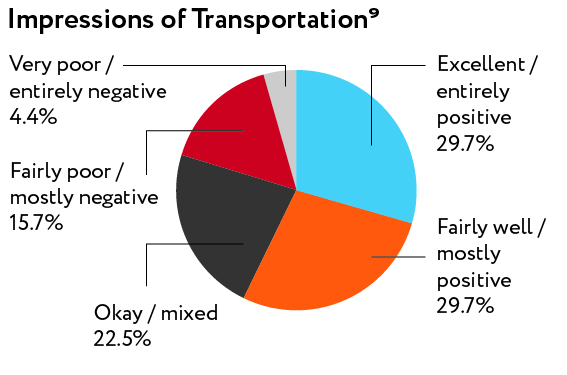
JOBS
Nearly 70% of neighbors indicated mostly or entirely positive feelings about their current employment situation.
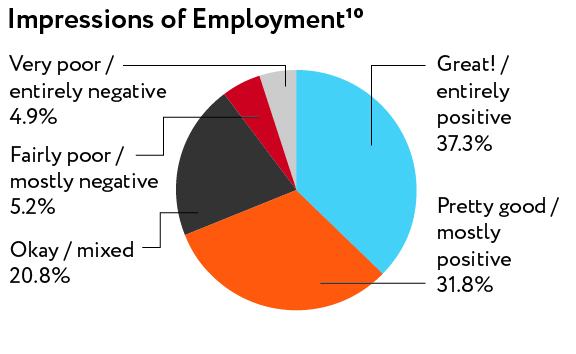
Challenges
When neighbors were asked about challenges facing them and their communities11, health care was mentioned most, with 1 in 4 neighbors saying that healthcare is a challenge.
Barriers to health care varied from limited access to insurance, high costs, or lack of nearby services. Many neighbors mentioned that they did not have insurance. For example, some people said:
Healthcare is okay. Wish there were maybe more resources. Very aware of nearby services for people who tend to live on edges of town.
She doesn't have health insurance. Needs healthcare, because she has chronic health conditions, and frequently has to go to the doctor.
Health care access. Goes to free clinics, but sometimes the free clinics take too long so opts to not go. Doesn't have insurance.
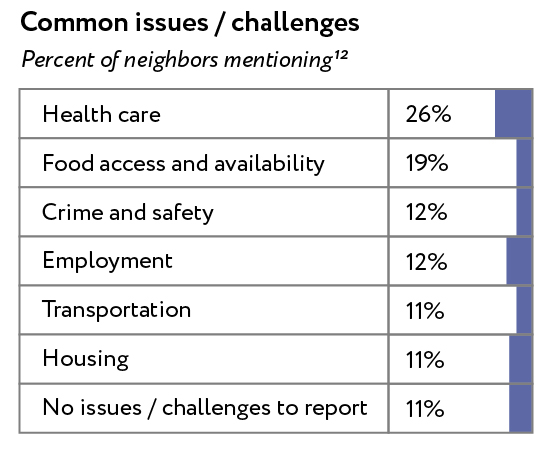
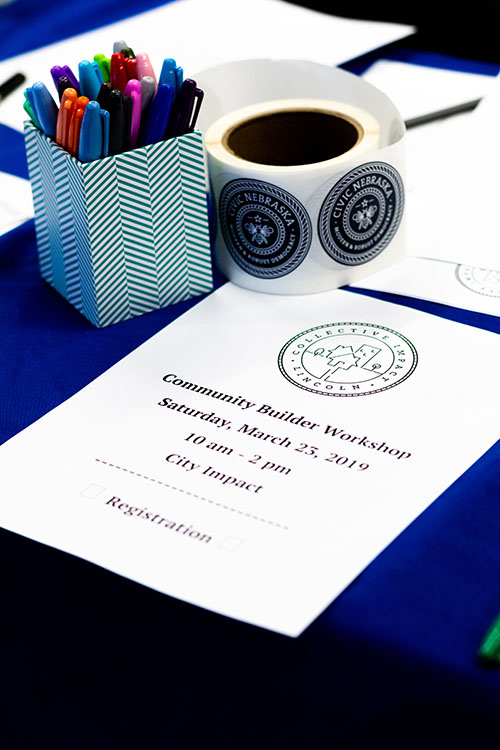
Food access and availability was the second-highest concern. Neighbors shared the need for fresh, quality food nearby, challenges in accessing SNAP or food benefits, and challenges with food programs such as availability and quality of food. Some neighbors also mentioned wanting a community garden or other community amenities. For example:
There isn’t access to food or healthcare in the neighborhood unless you have a car.
Used to get food stamps, but now gets less because she makes $20 more a month, but her benefits don't reflect that small change.
Trying to get food stamps. They barely have enough food and a lot of the food programming is during work hours. Mentioned that she has had experience with utility shutoffs.
On crime and safety, neighbors were concerned about crimes making them feel unsafe in their neighborhood or their homes. Neighbors were also concerned about policing too often in their neighborhood. Some wanted to improve neighborhood safety measures like adding more lighting or a police substation. For example:
Mentioned that there are several houses through which drugs are trafficked and nobody does anything about them.
Not comfortable walking home at night. Lots of police nearby - can't truly be yourself - always circling the same block trying to get someone in trouble. Doesn't make them feel safe. Always on edge.
Has witnessed a lot of harassment in the neighborhood, especially women in public. Also sees a lot of mental health and substance abuse issues in the neighborhood from people just walking around.
Regarding employment and economics, many neighbors talked about the “benefits cliff” – their food benefits cutting off when their income increases. Neighbors talked about not being able to make enough money to get by and trouble with utilities being shut off. For example:
Goes last week of each month with nothing on disability, difficult to pay all the bills. Has problems with credit score, can only drive when there is enough money for gas.
Has issues paying her gas bills and electric bills -- they have increased recently. Is on food stamps but doesn't get enough to sustain herself. Only gets $52 a month in food stamps.
Has had issues paying for utilities.
4Comments from neighbors were summarized by CIL team members.
5Based on 747 responses.
6Note: Categories ordered from most often to least often mentioned based on entire sample. Estimates based only on those individuals who both answered the question and could be assigned to a single neighborhood based on location data (ns: Belmont, 250; Clinton, 75; Everett, 95; Hartley, 23; Near South, 104; University Place, 69).
7Based on 704 responses.
9Based on 364 responses.
10Based on 364 responses.
11Question was: “We’re trying to identify issues that impact people’s lives such as food access, jobs, safety, or anything else that comes to mind. We’re curious to hear; what in your life is an issue that is a challenge for you or those around you?”
12Based on 225 responses.
